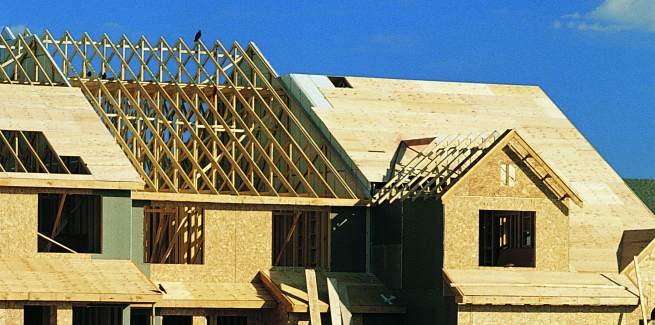The Australian Bureau of Statistics (ABS) has released data on building activity for the December 2020 quarter, which showed that the seasonally adjusted estimate for the total number of dwelling units commenced rose by 18.6 per cent to 51,055 dwellings.
The ABS attributed this increase to private sector houses, which rose by 26.6 per cent to a 20-year high of 33,761 dwellings.
Private sector other residential dwelling commencements rose by 4.1 per cent to 16,049 dwellings, recovering slightly from a 4.7 per cent fall in the September quarter, it said.
Meanwhile, the ABS data showed that the value of total building work done rose 0.1 per cent to $29.4 billion in the December quarter, in seasonally adjusted terms.
According to the ABS, the rise was driven by new residential building work done, which increased by 2.6 per cent to $15.4 billion.
Work done on new houses jumped by 3.8 per cent to $9.0 billion, while new other residential building rose 0.9 per cent to $6.4 billion.
However, non-residential building work done fell 3.6 per cent to $11.4 billion.
Commencements to increase further in 2021
Commenting on the ABS figures, Housing Industry Association chief economist Tim Reardon noted that the number of new houses that commenced construction in the December 2020 quarter was the second highest level on record.
He also underscored that commencements have not reached their peak, and indicated that it would continue to rise in 2021.
“This isn’t the peak of building commencements. We anticipate that commencements will reach a new peak in mid-2021. This will see a very strong level of building activity into the middle of 2022,” Mr Reardon said.
“This record level of investment in new home building occurred six months after the announcement of the HomeBuilder program. The increase in commencements occurred across all jurisdictions.
“The record volume of home building will continue to retain jobs and absorb workers from across the rest of the economy.”
Mr Reardon said the demand for detached housing is being supported by the record-low interest rates and the shift in the population away from the cities towards the regions.
He said: “The sudden realised potential of working from home has opened up new areas for housing demand that previously may have been considered too distant.”
Furthermore, Mr Reardon’s analysis of the figures showed that first home buyers have driven the majority of the record level of demand for detached housing, accounting for over 40 per cent of all loans in recent months.
“This contrasts with the investor-driven demand of the previous cycle,” he said.
“Multi-units starts saw a more modest increase of 4.6 per cent in the final quarter. This sector is still a long way down from its previous peaks and needs an injection of overseas migrants, students and tourists if it is to contribute more to Australia’s economic recovery.”
All states and territories posted growth in new house starts in the December 2020 quarter, according to Mr Reardon’s analysis.
The largest gain was in Western Australia, where new house starts doubled in the final quarter of 2020 (108.5 per cent), followed by the Northern Territory (51.7 per cent), Queensland (33.2 per cent), NSW (21.2 per cent), South Australia (13.1 per cent), the ACT (11.7 per cent), Victoria (9.9 per cent) and Tasmania (5.8 per cent).
The HIA in its state and national outlook reports said that a record 130,000 new detached homes will commence construction on 2021, driven partly by the HomeBuilder scheme.
Detached housing approvals reached record highs in December 2020, and again in February 2021.
[Related: Properties selling at record speed: research]
 ;
;
